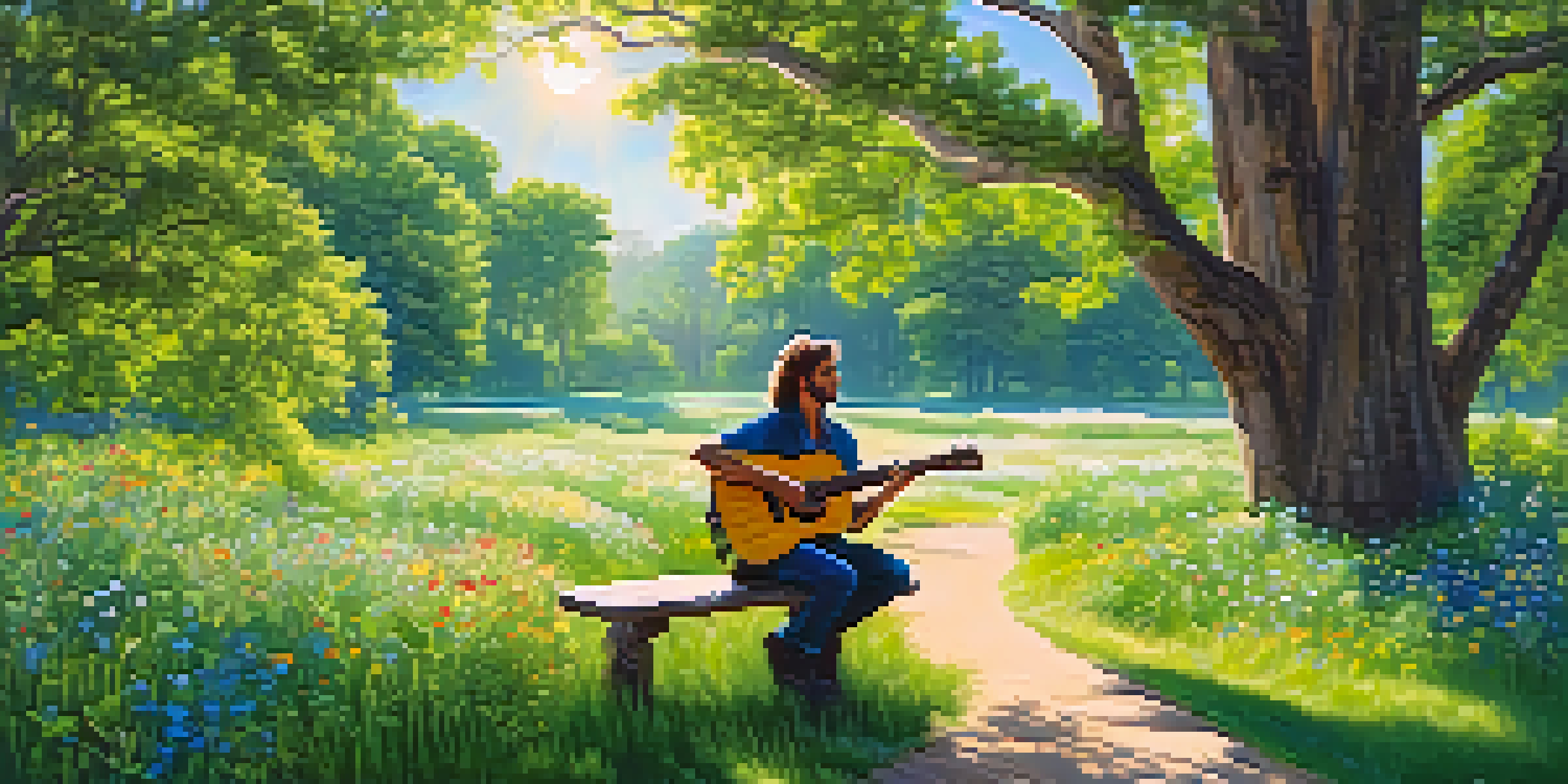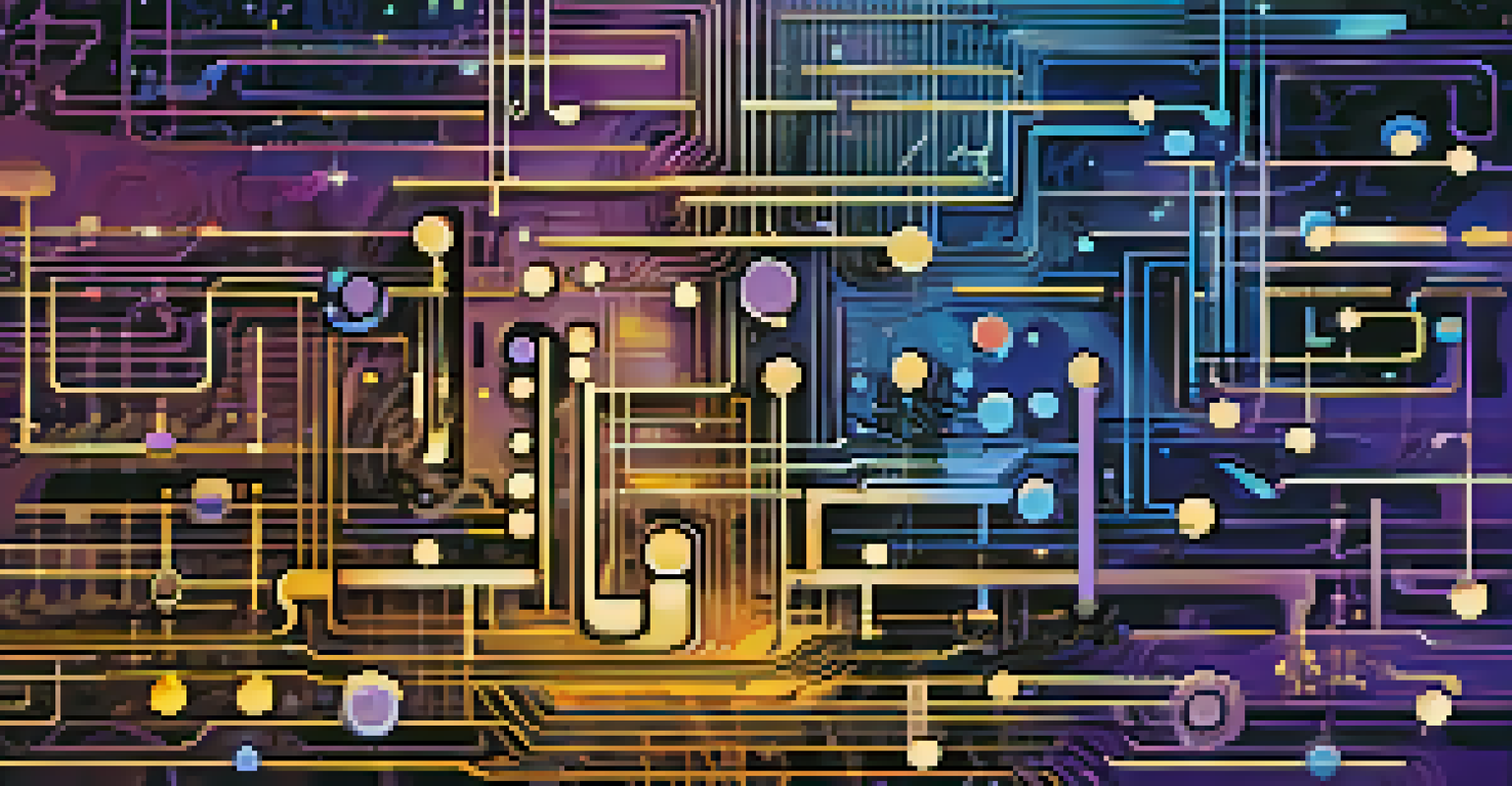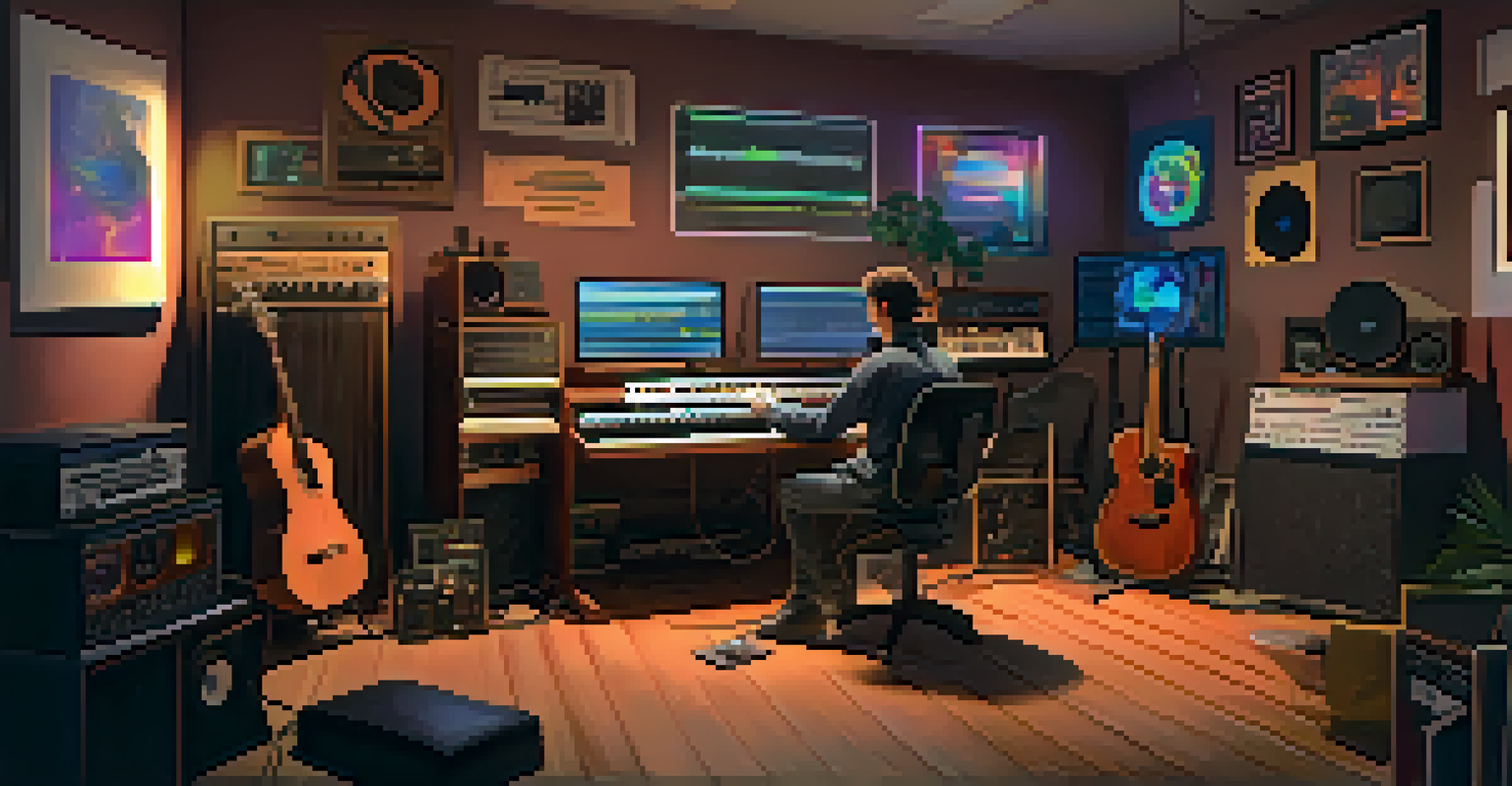Artificial Intelligence: Creativity or Copycat in Music?

Understanding AI's Role in Music Creation
Artificial Intelligence has increasingly made its mark in the music industry, generating compositions that range from classical to contemporary genres. By analyzing vast amounts of existing music, AI can create new pieces that mimic certain styles or genres. This technology raises a fundamental question: is AI truly creating music or just rehashing what it has learned?
Creativity is intelligence having fun.
To answer this, we must first understand how AI works in music production. Algorithms analyze patterns, structures, and elements of existing songs to produce new compositions. This method can lead to impressive results but often lacks the emotional depth and human experience that underpins much of our favorite music.
Thus, while AI can generate music that sounds good, the debate continues over whether it possesses genuine creativity. The distinction between inspiration and imitation becomes crucial as we explore the implications of AI-generated music.
The Creative Process: Human vs. AI
Human creativity is often fueled by emotions, experiences, and cultural contexts, which shape the music we create. A songwriter may draw from personal experiences, societal issues, or even a fleeting moment of inspiration to craft a song that resonates deeply with listeners. This intricate creative process is something uniquely human.

In contrast, AI's approach is more analytical, relying on data and algorithms rather than personal experiences. While it can simulate the sound and structure of music, it lacks the emotional context that often makes a song memorable. The heart of creativity—the human touch—seems to be missing from AI-generated music.
AI's Role in Music Creation
AI can generate music by analyzing existing compositions, but raises questions about its creativity and emotional depth.
This difference leads to another question: can AI ever truly replicate the depth of human creativity? The answer may lie in how we define creativity and whether we value emotional connection over technical proficiency.
Examples of AI-Generated Music
Several notable projects showcase AI's capabilities in music composition. For instance, OpenAI's MuseNet can generate songs in various styles, from Beethoven to modern pop, demonstrating its versatility. Similarly, AIVA (Artificial Intelligence Virtual Artist) has composed film scores and classical pieces that have been performed by professional musicians.
The best way to predict the future is to create it.
These examples highlight the growing acceptance of AI in the music world, as some artists collaborate with AI to enhance their creative process. The fusion of human insight and AI's analytical power can lead to fascinating new sounds and ideas, pushing the boundaries of music creation.
However, while these AI-generated pieces may sound impressive, they often spark discussions about originality and authenticity. Are these compositions true works of art, or just clever imitations of existing styles?
The Debate: Is AI a Copycat?
Critics argue that AI is fundamentally a copycat, relying solely on existing music to generate new compositions. By using pre-existing data, AI can only remix and reassemble ideas rather than create something entirely new. This perspective raises concerns about originality in an industry that thrives on innovation.
On the other hand, proponents of AI in music argue that all creativity, including human creativity, is influenced by previous works. Just as musicians draw inspiration from their predecessors, AI can be seen as another tool in the creative toolbox. This perspective suggests that AI might not be a copycat but rather an extension of human creativity.
Collaborative Potential of AI
Many artists are now using AI as a creative partner, leading to innovative sounds and expanding artistic boundaries.
Ultimately, the debate continues as we navigate the implications of AI's role in music. Whether we view it as a copycat or a collaborator may depend on our understanding of creativity itself.
AI Collaborations: A New Era in Music
Despite the concerns surrounding AI's role, many artists are embracing collaboration with AI technology. By using AI as a creative partner, musicians can explore new sounds and ideas, expanding their artistic horizons. This collaborative approach may lead to innovative genres and styles that fuse human emotion with machine-generated precision.
For instance, some artists use AI to generate backing tracks or melodies, which they then refine and infuse with their unique style. This partnership illustrates how AI can enhance rather than replace human creativity, allowing artists to push boundaries and create more diverse music.
This new era of music creation highlights the potential for AI to coexist with human artists, transforming the creative landscape. As we continue to explore these collaborations, we may find fresh ways to define and experience music.
Ethics and Ownership in AI Music
As AI becomes more integrated into music creation, ethical considerations around ownership and copyright arise. If an AI generates a song, who owns the rights to that music? This question becomes increasingly complex as more artists collaborate with AI, blurring the lines of authorship.
Current copyright laws were designed with human creators in mind, leaving gaps when it comes to machine-generated works. As AI technology continues to evolve, legal frameworks will need to adapt to address these challenges and ensure fair practices in the industry.
Ethics and Ownership Issues
As AI-generated music becomes more common, the complexities of ownership and copyright in the music industry need to be addressed.
Navigating these ethical dilemmas is essential to fostering a healthy relationship between AI and human musicians. Open discussions about ownership and rights can help create a balanced approach that respects the contributions of both parties.
The Future of AI in Music Creation
Looking ahead, the future of AI in music creation holds both exciting possibilities and significant challenges. As technology advances, we may witness even more sophisticated AI tools capable of producing music that rivals human composers. This potential could lead to a redefinition of what it means to be a musician in the digital age.
While some fear that AI will outpace human creativity, others see it as an opportunity to explore uncharted territories in music. By embracing AI, musicians can experiment with innovative sounds and styles that may not have been possible otherwise, enriching the musical landscape.

Ultimately, the key to a harmonious future lies in collaboration. By combining human artistry with AI's computational abilities, we can create a music scene that's more diverse and dynamic than ever before, fostering a new generation of creativity.